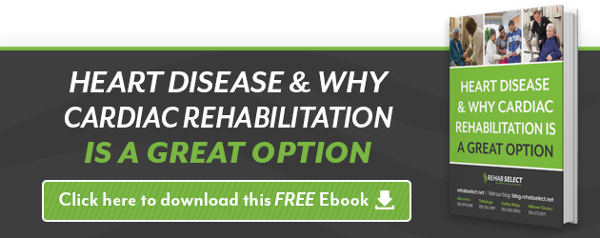
Is there a connection between stress and heart disease? Medical science has long thought so, a conclusion that has been supported by many studies over the years. An article from John Hopkins Medicine points out that “stress can increase inflammation in your body, which in turn is linked to factors that can harm your heart, such as high blood pressure and lower ‘good’ HDL cholesterol.” In addition, chronic stress affects your heart in a more indirect way, contributing to unhealthy lifestyle choices such as poor sleep, diet, and exercise habits that take a toll over time.
Researchers are still studying exactly how stress contributes to heart disease but have begun to gain a better understanding. Evidence shows a strong association between stress and heart disease, particularly when it comes to chronic or long-term stress — highlighting the importance of effective stress management.
Let’s examine the various ways that stress affects heart health.
How does stress affect your cardiovascular system?
So just how does chronic stress affect cardiovascular health? Recent studies provide more insight.
A study published in The Journal of Clinical Medicine concludes that over the past four decades, the medical community has become increasingly aware of the importance of stress as a significant risk factor for acute and chronic cardiovascular events. “Emerging epidemiological and experimental evidence suggest that stress-induced hemodynamic, vascular and inflammatory alterations may interact together and exert an important role in atherosclerosis progression, as well as in acute CV disease triggering, especially in high-risk individuals.” In other words, inflammation is the real culprit.
And it’s not just how chronic stress affects the body — it’s how it affects the brain too. In a Lancet study, researchers used images of part of the brain involved with fear and stress and found links between stress and cardiovascular disease episodes.
Stress can also be particularly dangerous for those with underlying heart disease. A 2021 study featured in the Journal of the American Medical Association examined the outcomes of 918 patients who had existing, yet stable, coronary heart disease. The investigation aimed to observe their responses to physical and mental stress. Through standardized tests, participants' hearts were evaluated for myocardial ischemia, which involves reduced blood flow to the heart muscles and can trigger cardiovascular issues. Over a span of four to nine years, the researchers monitored these individuals. Results showed that participants who exhibited ischemia during either test, or both, experienced notably more adverse effects from mental stress compared to physical stress. They faced a higher risk of subsequent nonfatal heart attacks or cardiovascular-related mortality in the ensuing years.
Does stress cause high blood pressure?
It’s generally understood that elevated blood pressure, or hypertension, significantly heightens the risk of developing heart disease. High blood pressure strains the walls of arteries, making them less flexible and more susceptible to damage. This damage can lead to the buildup of fatty deposits called plaques in the arteries, a condition known as atherosclerosis. But how does stress affect high blood pressure?
According to the American Heart Association, episodic stress triggers an adrenal reaction. It’s your body’s fight or flight response that prepares you to deal with a threatening situation. Your body releases adrenaline, a hormone that temporarily causes your breathing and heart rate to speed up and your blood pressure to rise.
Furthermore, the cumulative effect of these episodic spikes can have a long-term impact. The Mayo Clinic states:
“Stress can cause a steep rise in blood pressure. But when stress goes away, blood pressure returns to what it was before the stress. However, short spikes in blood pressure can cause heart attacks or strokes and may also damage blood vessels, the heart, and the kidneys over time. The damage is like the damage from long-term high blood pressure.”
This connection demonstrates how important it is to control anxiety and stress over time.
Can anxiety cause heart problems?
Anxiety is frequently associated with stress, so it’s no surprise that there’s a connection between anxiety and heart issues. In fact, a certain amount of anxiety is generally considered to be a normal stress response. However, when the level of anxiety qualifies as generalized anxiety disorder, there may be real risks associated with stress and heart disease.
Harvard Health reports that “there is mounting evidence for an independent anxiety-heart disease link as well. In particular, people who have generalized anxiety disorder seem to suffer higher rates of heart attack and other cardiac events.” For those with an existing heart condition, the effect is more pronounced and increases with the intensity and frequency of anxiety symptoms.
Anxiety is also the most common cause of heart palpitations that are unrelated to a heart problem. The Cleveland Clinic explains: “Many people experience heart palpitations along with anxiety. Anxiety sets off the body’s “fight or flight” response as part of the autonomic nervous system (ANS). When you feel uneasy about a situation, your ANS kicks in, increasing your heart rate.”
Effective stress management can help.
So just what can be done to protect your heart and health against the effects of daily stress or chronic stress? Avoiding stress altogether, of course, is impossible. However, taking steps to reduce stress in your life is important, as is learning to manage the stress you can't avoid more effectively.
According to Medical News Today, People can take steps to reduce or manage their stress. This could help maintain blood pressure at healthy levels by following these steps:
- maintaining an active social life
- practicing good time management
- not taking on too many commitments
- making time to relax
It’s proven that regular exercise helps reduce your levels of stress hormones and increases production of brain chemicals that improve your mood.
The American Heart Association recommends these stress-busting tips as well:
- Exercising regularly. It can relieve stress, tension, anxiety, and depression. Consider a nature walk, meditation, or yoga.
- Making time for friends and family. It’s important to maintain social connections and talk with people you trust.
- Getting enough sleep. Adults should aim for seven to nine hours a night.
- Maintaining a positive attitude.
- Practicing relaxation techniques while listening to music.
- Finding a stimulating hobby that can be fun and distract you from negative thoughts or worries.
It’s also crucial to eliminate negative lifestyle habits that are linked to stress and heart disease, including the following:
- Smoking
- Overeating
- Lack of physical activity
- Unhealthy diet
- Being overweight
- Not taking medications as prescribed
Given the potential hazards of chronic stress, these programs are a worthy investment, helping you learn how to minimize the toll stress can take on your cardiovascular system and your overall health. It can be even more important for individuals who’ve experienced a cardiac event to follow a structured program. Cardiac rehabilitation is an effective way for patients who have recently had heart surgery, been diagnosed with chronic heart disease, or had a major cardiac event to manage stress.
Find cardiac rehab in Alabama to support stress reduction goals.
At Rehab Select, we offer specialized cardiac rehabilitation in Alabama for both acute and chronic heart conditions. Our experienced staff can guide you through a personalized, clinician-led program of exercises and techniques to manage stress and heart disease. Find out how to improve your heart health, lessen stress and begin your path to a healthier lifestyle. We’d love to share more about cardiac rehab at our five Alabama locations — book a meeting today!




